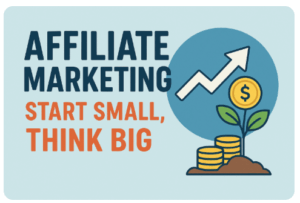From Hobby to Income: What Changed When I Treated My Blog Like a Business. It takes a whole new perspective when you take this transformative step
blog by Peter Hanley coachhanley.com
I still remember the exact moment I decided to actually treat my blog like a business instead of a side project.
It was a Tuesday morning. I’d just spent four hours writing an article—pouring my heart into it, crafting what I thought was genuinely helpful content. I hit publish, shared it on Twitter, and then… nothing. Well, not nothing exactly. A few likes. A handful of readers who probably forgot about it by lunchtime.
The frustrating part? I wasn’t upset about the small audience. I was upset because I suddenly realized I had no idea why I was writing at all.
That’s when everything shifted.
The Hobby Mindset vs. The Business Mindset
For the first two years, my blog was purely a hobby. I wrote when I felt inspired. And I skipped weeks without posting. I never tracked metrics beyond checking my page views out of curiosity. It was fun, but it wasn’t going anywhere.
Then I had a jarring conversation with a successful entrepreneur friend. She asked me, “What’s your revenue model?”
Revenue model? For my blog? I laughed it off. That wasn’t why I was writing.
But her question lingered. And it made me realize something uncomfortable: I was treating my passion project like it didn’t matter. I wasn’t serious about it. And if I wasn’t serious about it, why should anyone else be?
That’s when I decided to run my blog like an actual business—not because I suddenly wanted to be a “content creator,” but because I deserved to be paid for creating value. You do too.
The Changes I Made (That Actually Mattered)
1. I stopped writing about what interested me and started writing about what solved problems.
This was hard. I had to admit that some of my favorite topics weren’t actually that useful to my audience. So I made a list of the three main problems my readers faced. Then I built my entire editorial calendar around solving those problems in different ways.
My traffic tripled in three months.
2. I started treating content strategy like marketing, not art.
Every piece now had a purpose. Blog posts ranked for specific keywords. Email sequences converted readers into customers. My content wasn’t random anymore—it had a goal. This felt less creative at first, but honestly? Knowing my work actually moved people to action felt more creative than ever.
3. I built systems instead of relying on inspiration.
I wrote when my muse whispered to me. Now I write on Tuesdays and Thursdays, same time every week. I batch-create content. I have templates. It sounds boring, but it’s the only reason I’m consistent enough to actually build an audience.
4. I measured everything.
How many people read each post? Which topics generated the most engagement? What was my conversion rate on my CTA? I created a simple spreadsheet and tracked metrics that mattered to my business goals. The data was humbling—and it informed every decision after that.
5. Adding real monetization, not just hope.
I placed thoughtful affiliate recommendations where they made sense. Then I created a lead magnet and built an email list. I launched a simple digital product. I didn’t go crazy trying every monetization method—I focused on what made sense for my specific audience.
Within a year, my blog generated more income than my part-time freelance work.
The Uncomfortable Truth
Here’s what I discovered: treating your blog like a hobby is actually disrespectful to your audience.
When you’re serious about your work, you show up consistently. You solve real problems. You respect your readers’ time by making your content count. You’re not scattered across random topics—you’re building something intentional.
And when your audience feels that intentionality? They show up for you. They trust you. Furthermore They become customers, not just casual readers.
This doesn’t mean your blog stops being authentic or personal. Mine is more authentic now, actually—because I’m only writing about things I genuinely know can help people. I’m not faking enthusiasm for topics that don’t matter to me.
I also wrote about why Google loves blogs that do this one thing
Where I Am Now
My blog generates consistent income that covers my living expenses. More importantly, it’s built the foundation for multiple revenue streams—speaking engagements, consulting projects, products, partnerships. None of that would have been possible if I’d kept thinking like a hobbyist.
But the income isn’t even the best part. The best part is knowing that my work matters. That people trust me. That I’ve earned that trust by being serious about what I create.
If you’ve been sitting on a blog idea, or you’ve been blogging without direction, I’m telling you this from experience: the moment you decide to treat it like a business is the moment everything changes.
It doesn’t have to be complicated. It just has to be intentional.
Ready to Turn Your Passion Into Profit?
The gap between successful people and everyone else isn’t talent or luck—it’s understanding how to build a business that actually works.
If you’re serious about building something sustainable (whether that’s a blog, a product, or a full business), you need to think like an entrepreneur from day one.
That’s why I recommend The Millionaires Apprentice. It cuts through the noise and shows you the exact systems that successful people use to turn ideas into income. No fluff, no hype—just the frameworks that actually work.
Join The Millionaires Apprentice Today
Your future self will thank you for getting serious about this.

